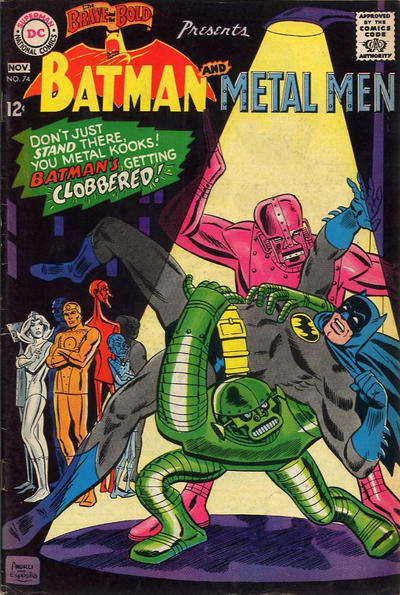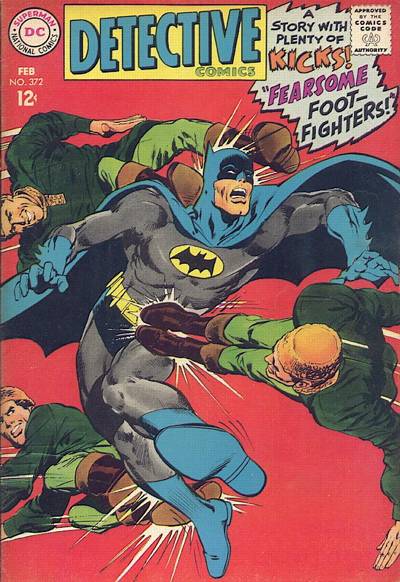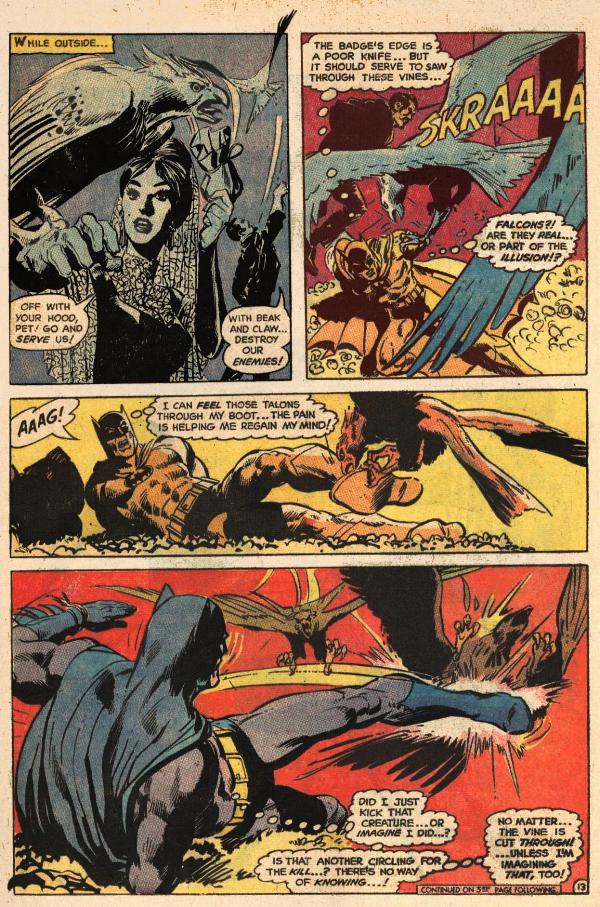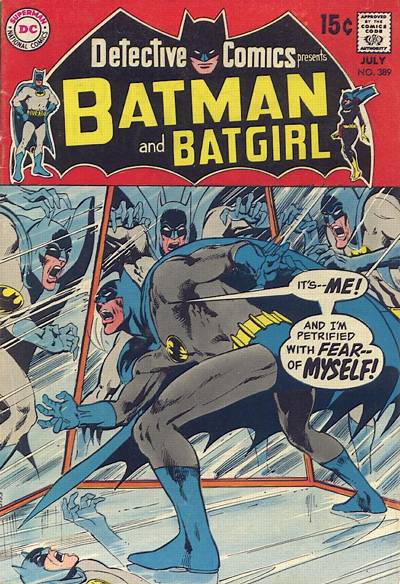When Neal Adams first began lurking on the outskirts of Gotham, DC was still more or less adhering to the tone of the 1960s TV show starring Adam West. Batman was an earnest do-gooder and there was little hint of the shadowy character he’d once been. It wasn’t camp or satire but it wasn’t grimy alleyways and psychopathic villains either.
“Batman in the daytime, walking down the street, having a conversation with Commissioner Gordon would, by its nature, attract a lot of attention,” Adams said in a lengthy interview in his Manhattan office. “It didn’t in the comic book. … It had just gotten silly.
“So I went to the editor,” – comics giant Julius Schwartz – “and I said, ‘Julie, I’d really like to do a couple of Batman stories.’ He wouldn’t let me. He kicked me out of his office. So I went down the hall to Murray Boltinoff, who was doing a comic book called Brave and the Bold.”
Brave and the Bold, like the more recent cartoon it inspired, was at the time primarily a Batman vehicle in which he’d team up with a different DC character.

Brave and Bold #74, the last pre-Adams B&B cover. Art by Ross Andru, mimicking the DC house style for Batman.
“So it was … Batman and this character/that character and it was written by a very good writer, DC Comics’ Bob Haney,” Adams explained. “And I think Bob Haney gets way too little credit for it. … He did a tremendous writing job on everything he worked on. Anyway, I asked if I could do some Brave and Bolds. Murray was delighted. Nobody told Julie, of course.
“I’m off with Murray Boltinoff and the book is selling fine,” Adams said. “So anyway, to make a cartoon out of it, if I may: I come to the DC Comics offices. The lights are out. There’s a red light from an exit light. Down at the end of the hall there’s a shaggy character, holding paper in his hand.
“‘Julie?’ I said.
“‘Adams! Get down here!’
“‘What is it, Julie?’
“‘How come I’ve got a handful of letters here — a stack of letters — saying the only Batman at DC Comics is in Brave and Bold?’
“‘Umm, I don’t know, Julie. But, well, I agree with them.’
“He says, ‘What makes you think you know what Batman is and we don’t?’
“‘Well, Julie, I don’t think it’s just what I think I know about Batman. I think it’s every kid in America. The only people who don’t seem to know what Batman is are the people here at DC Comics.’
“Julie said, ‘COME WITH ME! You’re drawing Batman.’”
“So I got to draw Batman. With Denny O’Neil, who by the way was a reporter and I believe he was on the police beat, or the night beat,” Adams continued. “Whatever the hell it was. So Denny was quite satisfactory as a writer because his stories were based in reality. Or kind of the reality that edged along fantasy but it didn’t really have clowns, which I didn’t wanna do at first.”
Their first collaboration was Detective Comics #395, cover-dated Jan. 1970. It was also Adams’ first solo Batman interior work.
“Right at the beginning we did more or less detective stories. Reasonably intelligent, kinda mysterious stories. So we had a terrific time. Everybody loved the books.”
Adams’ approach quickly caught on and became de rigueur.
“There were at least three artists who began to imitate my style at DC,” Adams said matter-of-factly. “So by the time I left Batman, I had left behind three guys who could pretty much draw Batman the way I had.”
He named Irv Novick, Jim Aparo and Bob Brown.
“All terrific guys. And if your next question is, ‘How do I feel about people imitating my style?’ People have to raise families,” he said with a chuckle. “They have to live. And if it makes sense to do, then it makes sense to do and that’s pretty much my view on it.
“I have no problem with any of that. I’m honored. In fact, each one of them came to me and said, ‘Neal, how would you feel if I did this, because they’re asking me to do it.’ And I said, ‘You know what? I love it. Please. Do it.’
“So, no, I have no problem with that.”
NEXT ISSUE: Building a Better Archer! Click here.





November 28, 2015
Does anyone else think that Jim Aparo had more of his own style than other artist Adams said copied his style?